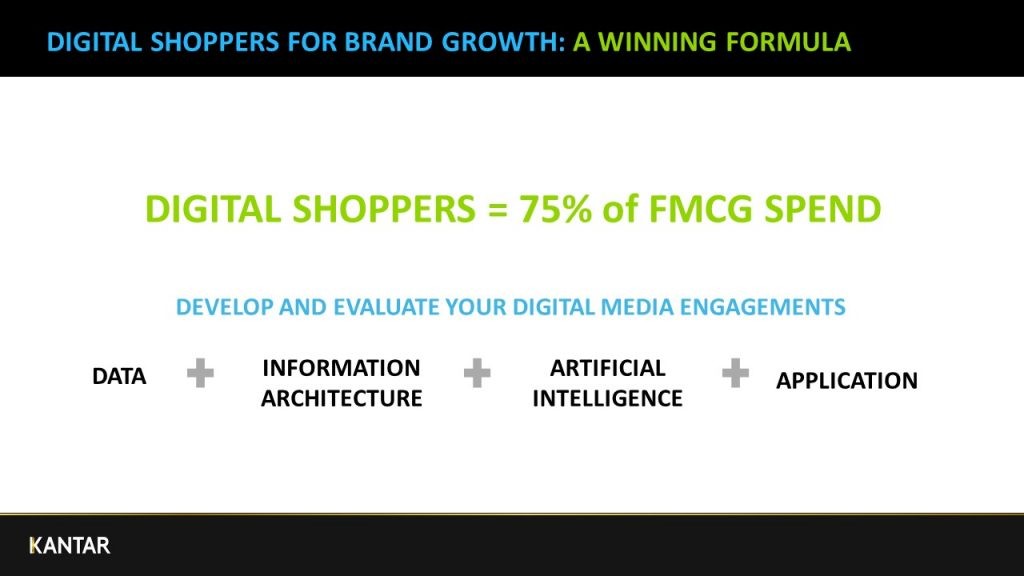MANILA, PHILIPPINES – Digital Shoppers now account for 75% of total Fast-Moving Consumer Goods (FMCG) sales in the Philippines, according to Kantar, the world’s leading data, insights and consulting company. Based on data gathered under its Digital Shoppers for Brand Growth research, Kantar looked into the purchasing behavior of Digital Shoppers across 3,000 homes nationwide from January 2016 to June 2019.
“In this study, we define Digital Shoppers as those who have access to the internet. We also observed how a Digital Shopper behaves holistically – both online and offline – studying their characteristics across various touchpoints. These cover where they shop, what products and how many they buy, and at what price they actually purchase the items for,” said Ledz Lim, Expert Solutions Director, Kantar Philippines.
Kantar finds that a Digital Shopper spends on average around PHP38,000 per year on FMCG products. This is PHP7,000 more compared to a non-digital shopper, who averages about PHP31,000 per year. While Digital Shoppers have access to the internet, they still continue to purchase FMCG products in Modern Trade channels, particularly in supermarkets and hypermarkets. In fact, in 2018, they spent PHP 461 billion in these brick and mortar establishments. Moreover, Kantar estimates that by end of 2020, the purchases made by Digital Shoppers will grow by twenty-five percent.
The Winning Formula
According to data from Kantar, the local FMCG market remains dynamic. However, not all FMCG brands are able to sustain growth. Nearly half or 46% of the 300 FMCG brands it tracks registered growth in 2018, and this growth increased to 71% in 2019. On the average, Kantar notes that only 37% of these brands sustained their growth during the two-year period.

To continue the growth momentum, FMCG brands need to identify new business opportunities in a seamless way. They need to develop and implement digital campaigns that will convince Digital Shoppers to buy their products in both online and offline channels. Capturing growth from Digital Shoppers, Kantar adds, requires designing, managing and properly evaluating digital brand engagements.
The Kantar research emphasizes that for FMCG brands to have good digital media engagements, it is important to have the right sets of data to analyze. Companies must consistently track the dynamic purchasing behavior of Digital Shoppers. They must also develop new information architecture that incorporates and combines multiple data sources into one cohesive map of the consumer purchasing journey. As FMCG brands explore using different technologies to further their growth, they should look into leveraging AI for data analytics. This, coupled with superior data processing in the areas of predictive and prescriptive analytics, will help marketers make better decisions and implement the right business applications.
“Digital technology is playing a huge role in the growth of the FMCG market today. AI tools are essential in helping companies make the right decisions as they analyze the best approach and strategies to take when reaching out to either online or offline customers. A harmony of both human and digital elements will help achieve sustainable growth for brands’ products,” added Lim.









